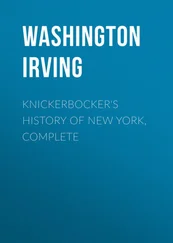Susie’s rape crisis center, in Boston, was broken up when some of the man haters castrated an alleged rapist in a parking lot in Back Bay. Susie had come back to New York—she had gone back to family counseling. She specialized in child beatings—“dealing with,” as she would say, both the children and the beaters—but she was sick of New York City (she said it was no fun to live in Greenwich Village if you weren’t a bear) and she was convinced that she had a future in rape crisis.
Having witnessed her performance at the Stanhope in 1964, I had to agree. Franny always said it was a better performance than any performance Franny would ever give, and Franny is very good. The way Franny held herself together for her one-line part in dealing with Chipper Dove must have given her the necessary confidence. In fact, in all her later films, Franny would make that old line live again: “Well, look who’s here.” She always finds a way to slip in that lovely line. She does not use her own name, of course. Movie stars almost never do. And Franny Berry isn’t exactly the sort of name that people notice.
Franny’s Hollywood name, her acting name, is one you know. This is our family’s story, and it’s inappropriate for me to use Franny’s stage name—but I know that you know her. Franny is the one you always desire. She is the best one, even when she’s the villain; she’s always the real hero, even when she dies, even when she dies for love—or worse, for war. She’s the most beautiful, the most unapproachable, but the most vulnerable, too, somehow—and the toughest. (She’s why you go to the movie, or why you stay.) Others dream of her, now—now that she has freed me from dreaming about her in quite such a devastating way. Now I can live with what I dream about Franny, but there must be members of her audience who don’t live so well with what they dream about her.
She made the adjustment to her fame very easily. It was an adjustment Lilly could never have made, but Franny made it easily—because she was always our family’s star. She was used to being the main attraction, the center of everyone’s attention—the one we waited for, the one we listened to. She was born to the leading role.
“And I was born to be a miserable fucking agent ,” Frank said gloomily, after Lilly’s funeral. “I have agented even this,” he said, meaning Lilly’s death. “She wasn’t big enough for all the shit I gave her to do!” he said, morosely; then he began to cry. We tried to cheer him up, but Frank said, “I’m always the fucking agent , damn it. I bring it all about—that’s me. Look at Sorrow!” he howled. “Who stuffed him? Who started the whole story?” Frank cried, crying and crying. “I’m just the asshole agent,” he blubbered.
But Father reached out to Frank, the baseball bat as his antenna, and he said, “Frank, Frank, my boy. You’re not the agent of Lilly’s trouble, Frank,” Father said. “Who is the family dreamer, Frank?” Father asked, and we all looked at him. “Well, it’s me — I’m the dreamer, Frank,” Father said. “And Lilly just dreamed more than she could do , Frank. She inherited the damn dreams,” Father said. “From me.”
“But I was her agent,” Frank said, stupidly.
“Yes, but that doesn’t matter, Frank,” Franny said. “I mean, it matters that you’re my agent, Frank—I really need you,” Franny told him. “But nobody could be Lilly’s agent, Frank.”
“It wouldn’t have mattered, Frank,” I told him—because he was always saying this to me. “It wouldn’t have mattered who her agent was, Frank.”
“But it was me,” he said—he was so infuriatingly stubborn!
“Christ, Frank,” Franny said. “It’s easier to talk to your answering service.” That finally brought him around.
For a while we would have to endure the wall of worshipful wailers: Lilly’s suicide cult—they were her fans who thought that Lilly’s suicide was her ultimate statement, was the proof of her seriousness. This was ironic in Lilly’s case, because Frank and Franny and I knew that Lilly’s suicide—from Lilly’s point of view was the ultimate admission that she was not serious enough . But these people insisted on loving her for what she least loved in herself.
A group of Lilly’s suicide fans even wrote to Franny, requesting that Franny travel to the nation’s college campuses giving readings from Lilly’s work—as Lilly. It was Franny the actress they were appealing to: they wanted Franny to play Lilly.
And we remembered Lilly’s only writer-in-residence role, and her account of the only English Department meeting she ever attended. In the meeting, the Lecture Committee revealed that there was only enough money remaining for two more visits by moderately well-known poets, or one more visit by a well-known writer or a poet, or they could contribute all the remaining money toward the considerable expenses asked by a woman who was traveling the nation’s campuses “doing” Virginia Woolf. Although Lilly was the only person in the English Department who actually taught any of Virginia Woolf’s books in her courses, she found that she was alone in resisting the department’s wishes to invite the Virginia Woolf impersonator. “I think Virginia Woolf would have wanted the money to go to a living writer,” Lilly said. “To a real writer,” she added. But the department insisted that they wanted all the money to go to the woman who “did” Virginia Woolf.
“Okay,” Lilly finally said. “I’ll agree, but only if the woman does it all . Only if she goes all the way.” There was a silence in the English Department meeting and someone asked Lilly if she was really serious—if she could possibly be in such “bad taste” as to suggest that the woman come to the campus to commit suicide.
And my sister Lilly said, “It is what my brother Frank would call disgusting that you—as teachers of literature—would actually spend money on an actress imitating a dead writer, whose work you do not teach, rather than spend it on a living writer, whose work you probably haven’t read. Especially,” said Lilly, “when you consider that the woman whose work is not being taught, and whose person is being imitated, was virtually obsessed with the difference between greatness and posing . And you want to pay someone to pose as her ? You should be ashamed,” Lilly told them. “Go ahead and bring the woman here,” Lilly added. “I’ll give her the rocks to put in her pockets; I’ll lead her to the river.”
And that is what Franny told the group who wanted her to pose as Lilly and “do” the nation’s campuses. “You should be ashamed,” Franny said. “Besides,” she added, “I am much too tall to play Lilly. My sister was really short .”
This, by the suicide fans, was construed as Franny’s insensitivity—and by association, in various aspects of the news, our family was characterized as being indifferent to Lilly’s death (for our unwillingness to take part in these Lilly poses ). In frustration, Frank volunteered to “do” Lilly at a public reading from the works of suicidal poets and writers. Naturally, none of the writers or poets were reading from their own work; various hired readers, sympathetic to the work of the deceased—or worse, sympathetic to their “lifestyle,” which nearly always meant their “death-style”—would read the work of the suicides as if they were the dead authors come back to life. Franny wanted no part of this, either, but Frank volunteered; he was rejected. “On the grounds of ‘insincerity,’” he said. “They surmised I was insincere. Fucking right I was!” he shouted. “They could all stand a fucking overdose of insincerity!” he added.
Читать дальше












